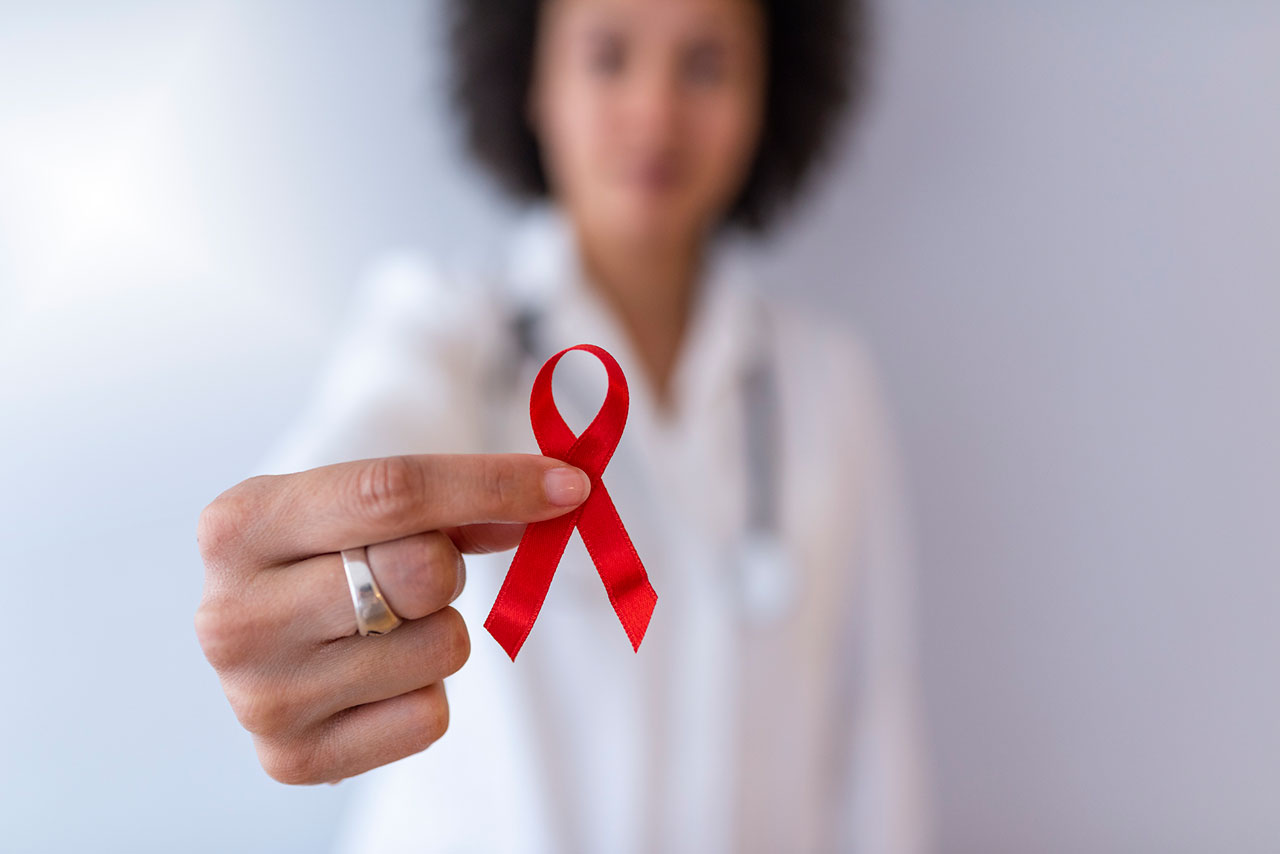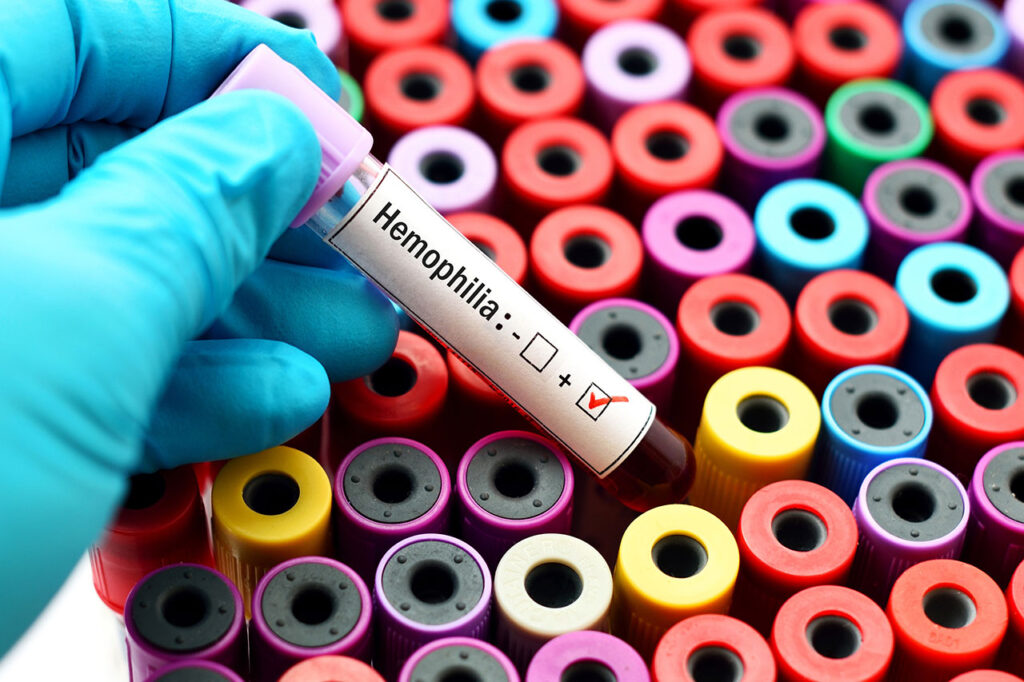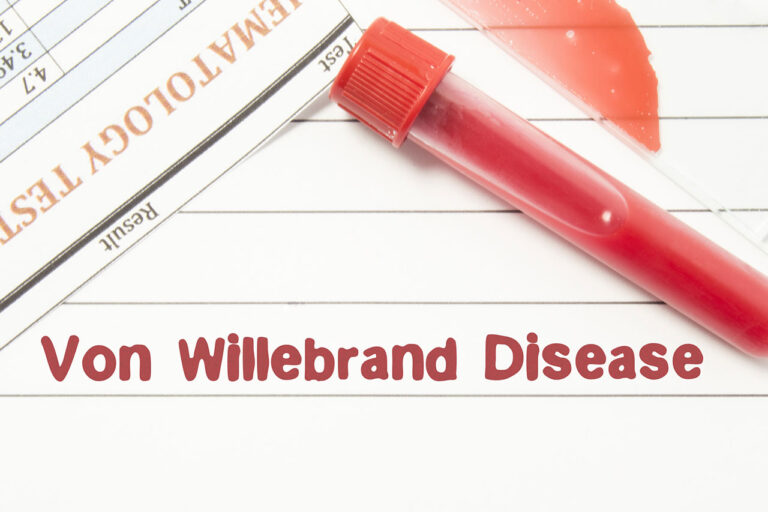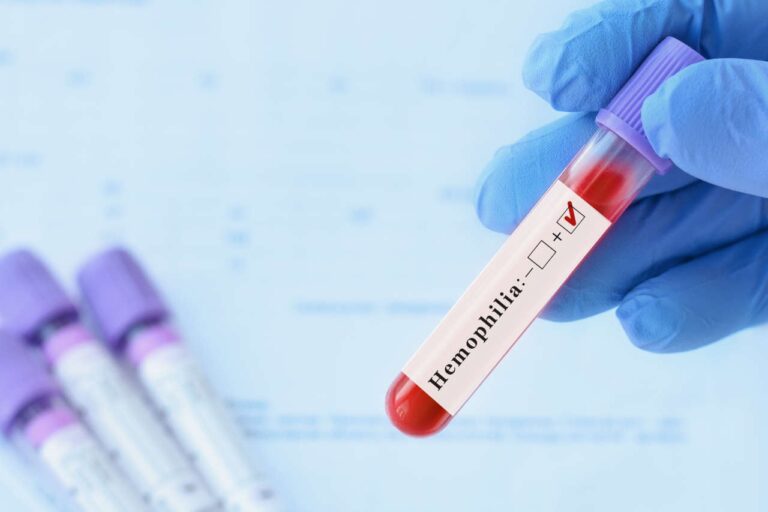
- Bệnh máu khó đông mắc phải là một rối loạn tự miễn dịch hiếm gặp, trong đó cơ thể tấn công các yếu tố đông máu của chính nó, dẫn đến chảy máu không thể đoán trước và có khả năng nghiêm trọng.
- Nhiều yếu tố có thể gây ra tình trạng này, bao gồm rối loạn tự miễn, bệnh ác tính, một số loại thuốc, thai kỳ và nhiễm trùng.
- Chẩn đoán dựa vào xét nghiệm trong phòng thí nghiệm để xác định tình trạng thiếu hụt yếu tố đông máu và sự hiện diện của kháng thể tự miễn.
- Điều trị bao gồm kiểm soát các đợt chảy máu bằng các tác nhân trung gian và loại bỏ các kháng thể tự miễn thông qua liệu pháp ức chế miễn dịch.
Nhận hỗ trợ tài chính
Bệnh máu khó đông mắc phải là một chứng rối loạn chảy máu hiếm gặp và phức tạp, có thể xuất hiện bất ngờ, ngay cả ở những người không có tiền sử về vấn đề đông máu.
Không giống như các dạng bệnh máu khó đông cổ điểnTình trạng này phát triển khi hệ thống miễn dịch của cơ thể tấn công nhầm các yếu tố đông máu thiết yếu. Việc phát hiện sớm và điều trị kịp thời bệnh ưa chảy máu mắc phải là rất quan trọng để ngăn ngừa các biến chứng chảy máu đe dọa tính mạng.
Trong hướng dẫn này, chúng ta sẽ xem xét nguyên nhân và các yếu tố nguy cơ của bệnh máu khó đông mắc phải. Chúng ta cũng sẽ tìm hiểu các loại thuốc hiện có và xem xét những thách thức cần giải quyết. Hãy tiếp tục đọc để tìm hiểu thêm về tình trạng này và cách kiểm soát nó.
Bệnh máu khó đông mắc phải là gì?
Bệnh máu khó đông mắc phải (AH) là một bệnh hiếm gặp rối loạn tự miễn dịch Đặc trưng bởi sự phát triển của các tự kháng thể, còn gọi là chất ức chế, nhắm vào và trung hòa yếu tố đông máu VIII. Yếu tố này là một protein quan trọng trong quá trình hình thành cục máu đông.
AH xảy ra ở 1,5 trên một triệu người mỗi năm. Bệnh này khác với bệnh máu khó đông di truyền, là một tình trạng di truyền có từ khi sinh ra do gen bị lỗi.
Mặc dù hiếm gặp, AH là một tình trạng nghiêm trọng cần được chẩn đoán ngay lập tức và chăm sóc chuyên khoa vì nó có thể dẫn đến các đợt chảy máu tự phát hoặc nghiêm trọng có thể đe dọa đến tính mạng.
Nguyên nhân và tác nhân gây bệnh máu khó đông mắc phải
Việc sản xuất tự kháng thể chống lại yếu tố VIII là nguyên nhân chính gây ra bệnh máu khó đông mắc phải. Sự tấn công nhầm lẫn của hệ miễn dịch vào protein đông máu này làm gián đoạn khả năng hình thành cục máu đông của cơ thể.
Mặc dù nguyên nhân chính xác của phản ứng tự miễn dịch này không phải lúc nào cũng rõ ràng, nhưng nó có thể được kích hoạt bởi nhiều yếu tố khác nhau. Phương pháp điều trị lý tưởng cho bệnh máu khó đông mắc phải có thể khác nhau tùy thuộc vào nguyên nhân gây ra.
Hãy cùng xem xét những tác nhân gây bệnh phổ biến nhất và các tình trạng bệnh lý tiềm ẩn có thể gây ra AH.
Rối loạn tự miễn dịch
Các điều kiện như bệnh lupus, viêm khớp dạng thấp, bệnh đa xơ cứngvà hội chứng Sjögren có thể khiến cá nhân dễ mắc bệnh máu khó đông do hệ thống miễn dịch hoạt động quá mức.
Bệnh ác tính
Bệnh ác tính về huyết học chẳng hạn như bệnh bạch cầu, u lympho, Và bệnh đa u tủy, cùng với các khối u rắn như ung thư phổi hoặc ung thư vú, có liên quan đến nguy cơ mắc bệnh máu khó đông tự miễn cao hơn do hoạt động miễn dịch bất thường.
Thuốc men
Một số loại thuốc, bao gồm penicillin, interferon và chloramphenicol, có thể kích hoạt phản ứng miễn dịch dẫn đến hình thành kháng thể tự miễn chống lại yếu tố VIII.
Mang thai và thời kỳ sau sinh
Các thời kỳ hậu sản có nguy cơ cao mắc bệnh máu khó đông mắc phải. Nguy cơ gia tăng này có thể là do sự điều chỉnh hệ miễn dịch trong quá trình mang thai và hồi phục. Tuy nhiên, AH thường tự khỏi trong những trường hợp này.
Nhiễm trùng và các tác nhân kích thích khác
Nhiễm trùng như viêm gan C và B, các bệnh về đường hô hấp và phản ứng thuốc có hại có thể đóng vai trò là tác nhân kích hoạt môi trường, khởi phát các phản ứng tự miễn dịch nhắm vào các yếu tố đông máu.
Các trường hợp vô căn
Trong khoảng 50% trường hợpKhông tìm thấy nguyên nhân hoặc tác nhân kích hoạt nào có thể xác định được. Rối loạn này tự phát mà không có bệnh lý nền rõ ràng.
Các yếu tố nguy cơ của bệnh máu khó đông mắc phải
AH có thể xảy ra ở mọi lứa tuổi, cả nam và nữ. Tuy nhiên, các yếu tố sau đây có thể đóng vai trò là nguyên nhân góp phần và làm tăng nguy cơ mắc bệnh máu khó đông mắc phải:
- Tuổi: AH chủ yếu ảnh hưởng đến người lớn tuổi, đặc biệt là những người trên 65 tuổi.
- Giới tính: Có một sự gia tăng nhỏ về tỷ lệ mắc bệnh ở phụ nữ trong thời kỳ mang thai.
- Bệnh đi kèm: Các tình trạng bệnh lý hiện có, chẳng hạn như những tình trạng được liệt kê ở trên, có thể làm tăng nguy cơ mắc AH.
Nói chuyện với một chuyên gia
Về Trợ cấp đồng thanh toánCác triệu chứng của bệnh máu khó đông mắc phải
Bệnh máu khó đông tự miễn thường biểu hiện bằng chảy máu có thể tự phát hoặc do các biến cố nhỏ gây ra. Không giống như chảy máu khớp điển hình thường thấy ở bệnh máu khó đông di truyền, chảy máu ở dạng mắc phải thường biểu hiện ở các vùng khác của cơ thể.
Mức độ chảy máu có thể rất khác nhau, từ vết bầm tím nhẹ đến xuất huyết đe dọa tính mạng. Những người được chẩn đoán mắc bệnh máu khó đông mắc phải cần được điều trị kịp thời để tránh những hậu quả nghiêm trọng.
Sau đây là thông tin chi tiết hơn về các triệu chứng của tình trạng này:
- Trình bày điển hình: Chảy máu tự phát hoặc do kích thích
- Biểu hiện chảy máu thường gặp:
- Chảy máu cơ
- Chảy máu mũi (chảy máu cam)
- Bầm tím và xuất huyết dưới da
- Tụ máu dưới da tự phát
- Chảy máu ở đường tiêu hóa và đường tiết niệu sinh dục
- Các trường hợp nghiêm trọng:
- Xuất huyết nội sọ (có khả năng đe dọa tính mạng)
Bệnh máu khó đông mắc phải được chẩn đoán như thế nào?

Chẩn đoán bệnh máu khó đông mắc phải đòi hỏi phải hiểu rõ nguyên nhân gây bệnh và đánh giá lâm sàng toàn diện bằng các xét nghiệm chuyên khoa.
Hầu hết các nhóm chăm sóc sức khỏe đều dựa vào sự kết hợp của các đánh giá sau đây để chẩn đoán bệnh.
Xét nghiệm trong phòng thí nghiệm
- APTT kéo dài với thời gian prothrombin bình thường: Điều này cho thấy có vấn đề ở một phần cụ thể của con đường đông máu.
- Kết hợp các nghiên cứu để phân biệt tình trạng thiếu hụt và chất ức chế: Xét nghiệm này giúp xác định xem vấn đề là do thiếu yếu tố hay do kháng thể chặn yếu tố đó.
- Đo hoạt động của yếu tố VIII: Phương pháp này đo lường mức độ chức năng của yếu tố đông máu bị ảnh hưởng.
- Xác định nồng độ chất ức chế (đơn vị Bethesda): Điều này định lượng sức mạnh của kháng thể tự miễn.
Nhận hỗ trợ đồng thanh toán ngay
Đánh giá bổ sung
- Điều tra nguyên nhân cơ bản: Các nhà cung cấp dịch vụ chăm sóc sức khỏe sẽ tìm kiếm bất kỳ tình trạng bệnh lý hoặc tác nhân gây bệnh nào có thể gây ra bệnh máu khó đông mắc phải.
- Loại trừ các rối loạn chảy máu khác: Các xét nghiệm được thực hiện để loại trừ các nguyên nhân tiềm ẩn khác gây chảy máu.
Điều trị bệnh Hemophilia mắc phải
Việc quản lý AH đòi hỏi phải áp dụng phương pháp tiếp cận theo hai hướng: kiểm soát các đợt chảy máu và loại bỏ kháng thể tự miễn gây ra tình trạng này.
Việc điều trị được cá nhân hóa cao và điều chỉnh theo mức độ chảy máu và nồng độ chất ức chế của từng bệnh nhân. Phương pháp này thường bao gồm các thuốc cầm máu và các chiến lược ức chế miễn dịch để phục hồi chức năng đông máu.
Dưới đây là tổng quan về hiện tại thuốc điều trị bệnh máu khó đông và các chiến lược điều trị mà nhóm chăm sóc sức khỏe khuyến nghị.
Quản lý các đợt chảy máu
Kiểm soát chảy máu là bước đầu tiên quan trọng trong việc điều trị bệnh hemophilia mắc phải. Phương pháp tiếp cận phụ thuộc vào mức độ nghiêm trọng và vị trí chảy máu, cần can thiệp kịp thời nếu có biến cố lớn.
Chảy máu nhẹ
Đối với những người bị chảy máu nhẹ hoặc có nồng độ chất ức chế thấp, việc theo dõi và tránh các thủ thuật xâm lấn có thể là đủ. Việc ngừng các loại thuốc như aspirin hoặc ibuprofen, vì chúng có thể làm tình trạng chảy máu nặng hơn, cũng rất quan trọng.
Trong trường hợp nồng độ chất ức chế thấp (thường ≤5 đơn vị Bethesda [BU]) và nồng độ yếu tố VIII trên 5%, có thể sử dụng desmopressin (DDAVP). Thuốc này có thể tạm thời làm tăng nồng độ yếu tố VIII và giúp kiểm soát các đợt chảy máu nhẹ.
Chảy máu lớn
Đối với các đợt chảy máu nghiêm trọng, các tác nhân bắc cầu thường là phương pháp điều trị đầu tay. Các liệu pháp này tránh được nhu cầu sử dụng yếu tố VIII chức năng để thúc đẩy quá trình đông máu tại vị trí chảy máu ở những người mắc bệnh ưa chảy máu mắc phải.
Yếu tố VII hoạt hóa tái tổ hợp (rFVIIa), chẳng hạn như NovoSeven RT, là một tác nhân chuyển tiếp. Phương pháp điều trị được phê duyệt này cho bệnh hemophilia mắc phải là một protein được biến đổi gen giúp khởi phát quá trình đông máu và thường được dung nạp tốt.
Phức hợp prothrombin hoạt hóa cô đặc (aPCC), như FEIBA, là một tác nhân bắc cầu khác. Nó chứa các yếu tố đông máu được hoạt hóa, bỏ qua sự thiếu hụt yếu tố VIII để hình thành cục máu đông. Thuốc chống tiêu fibrin như epsilon-axit aminocaproic có thể được sử dụng cùng với các tác nhân trung gian để ổn định cục máu đông.
Yếu tố VIII ở lợn, chẳng hạn như yếu tố VIII tái tổ hợp ở lợn (rpFVIII) như Obizur, là một lựa chọn khác. Đây là dạng tái tổ hợp của yếu tố VIII có nguồn gốc từ lợn. Nó thường không bị ức chế bởi các tự kháng thể yếu tố VIII ở người.
Loại bỏ chất ức chế
Việc loại bỏ các kháng thể gây ra bệnh máu khó đông mắc phải là rất quan trọng trong việc điều trị lâu dài. Các bác sĩ thực hiện việc loại bỏ này thông qua các liệu pháp ức chế miễn dịch, chẳng hạn như:
- Corticosteroid (Prednisone): Prednisone liều 1 mg/kg/ngày là thuốc ức chế miễn dịch hàng đầu cho bệnh máu khó đông mắc phải. Thuốc làm giảm nồng độ chất ức chế và thúc đẩy khả năng dung nạp miễn dịch.
- Cyclophosphamide: Thuốc alkyl hóa này được sử dụng kết hợp với corticosteroid để đẩy nhanh quá trình loại bỏ chất ức chế. Nó điều chỉnh phản ứng miễn dịch và tăng khả năng đạt được sự thuyên giảm.
- Rituximab: Kháng thể đơn dòng kháng CD20 này được sử dụng như liệu pháp điều trị đầu tay kết hợp với các thuốc khác hoặc như một lựa chọn điều trị thứ hai cho những người không đáp ứng với điều trị ban đầu. Thuốc nhắm vào tế bào B, nơi sản xuất các tự kháng thể.
Các phương pháp điều trị mới cho bệnh máu khó đông mắc phải

Một số tác nhân đầy hứa hẹn đang được nghiên cứu. Các tác nhân này tập trung vào những phương pháp cụ thể hơn để kiểm soát bệnh máu khó đông mắc phải. Một số phương pháp điều trị mới nổi này bao gồm:
- Kháng thể hai đặc hiệu mô phỏng yếu tố VIII để thúc đẩy quá trình đông máu mà không cần đến yếu tố này.
- Các chất bắt chước cofactor được thiết kế để tăng cường quá trình đông máu mà không phụ thuộc vào yếu tố VIII.
- Gen FVIII lợn tái tổ hợp cung cấp giải pháp thay thế có mục tiêu với khả năng nhạy cảm thấp hơn với kháng thể của người.
Những tiến bộ này mang lại hy vọng về những phương pháp điều trị hiệu quả và thuận tiện hơn trong tương lai.
Nhận hỗ trợ tài chính
Những thách thức trong điều trị bệnh máu khó đông mắc phải
Việc quản lý AH có một số thách thức như sau:
- Chẩn đoán chậm trễ có thể gây chảy máu không kiểm soát và làm tăng nguy cơ.
- Điều trị phức tạp ở người cao tuổi hoặc người có bệnh lý đi kèm đòi hỏi phải cân nhắc rủi ro cẩn thận.
- Việc sử dụng thuốc bỏ qua có thể gây ra nguy cơ huyết khối, đặc biệt là ở người lớn tuổi mắc bệnh máu khó đông.
- Liệu pháp ức chế miễn dịch gây ra các tác dụng phụ như nhiễm trùng và độc tính ở cơ quan.
- Có khả năng tái phát, đòi hỏi phải theo dõi lâu dài.
Các nghiên cứu trong tương lai cần giải quyết những thách thức này và giúp cuộc sống chung với AH dễ dàng hơn.
Quản lý bệnh Hemophilia với Nhà thuốc chuyên khoa AmeriPharma®
AH là một tình trạng hiếm gặp nhưng nghiêm trọng, có thể gây ra hậu quả đe dọa tính mạng. Mặc dù nguyên nhân chính xác của bệnh hemophilia mắc phải vẫn chưa rõ ràng, việc hiểu rõ các triệu chứng và phương pháp điều trị có thể giúp người bệnh kiểm soát bệnh tốt hơn.
Nếu bạn hoặc người thân của bạn được chẩn đoán mắc bệnh máu khó đông mắc phải, Nhà thuốc Chuyên khoa AmeriPharma® luôn sẵn sàng hỗ trợ bạn. Nhà thuốc của chúng tôi được chứng nhận URAC hiệu thuốc chuyên khoa cung cấp quyền tiếp cận các loại thuốc khó tìm cho những người mắc các bệnh lý phức tạp như AH.
Liên hệ với chúng tôi ngay hôm nay để bắt đầu và nhận được điều trị AH với sự phối hợp dịch vụ đầy đủ, hỗ trợ đồng thanh toánvà hỗ trợ 24/7/365.












